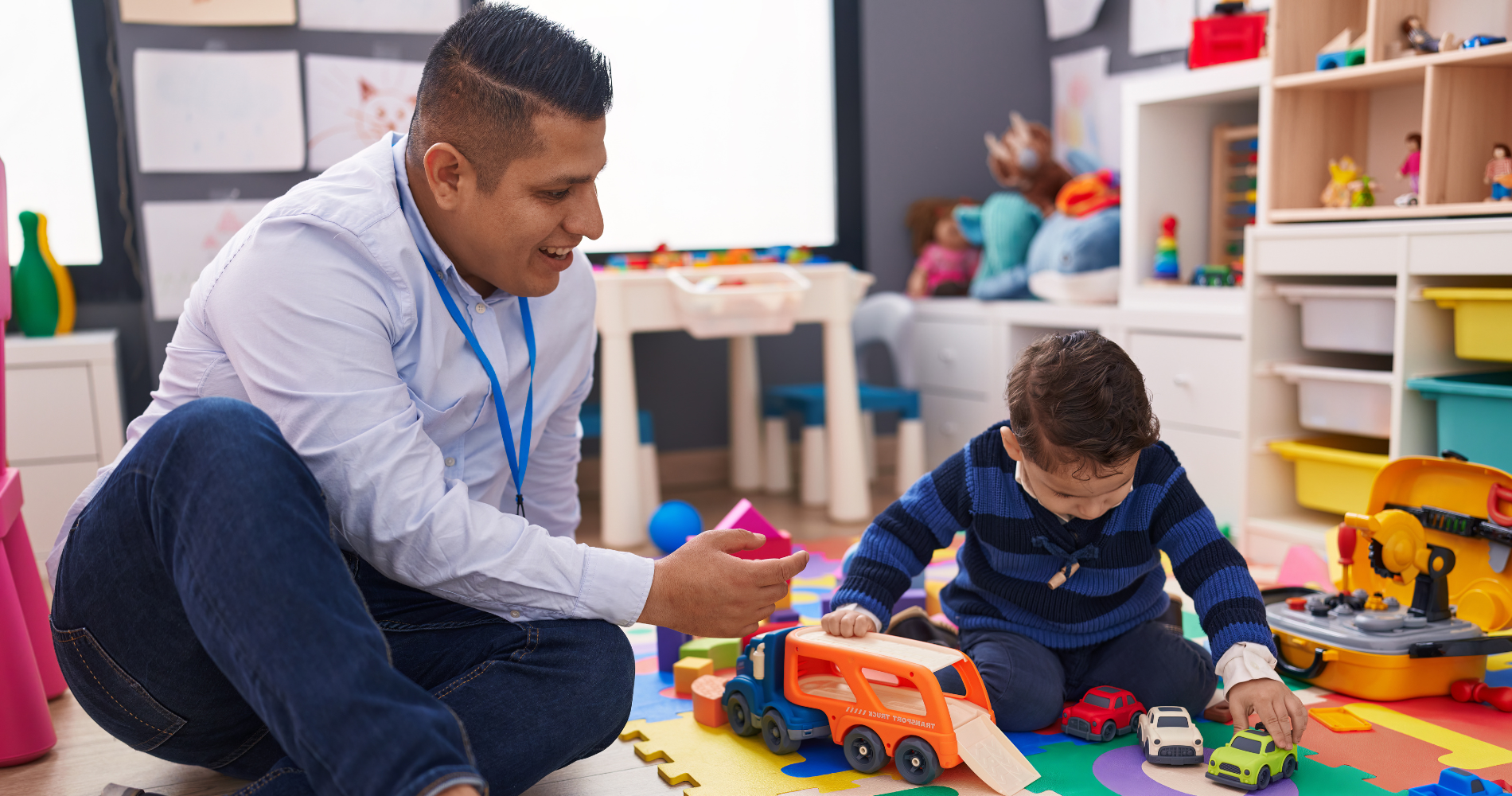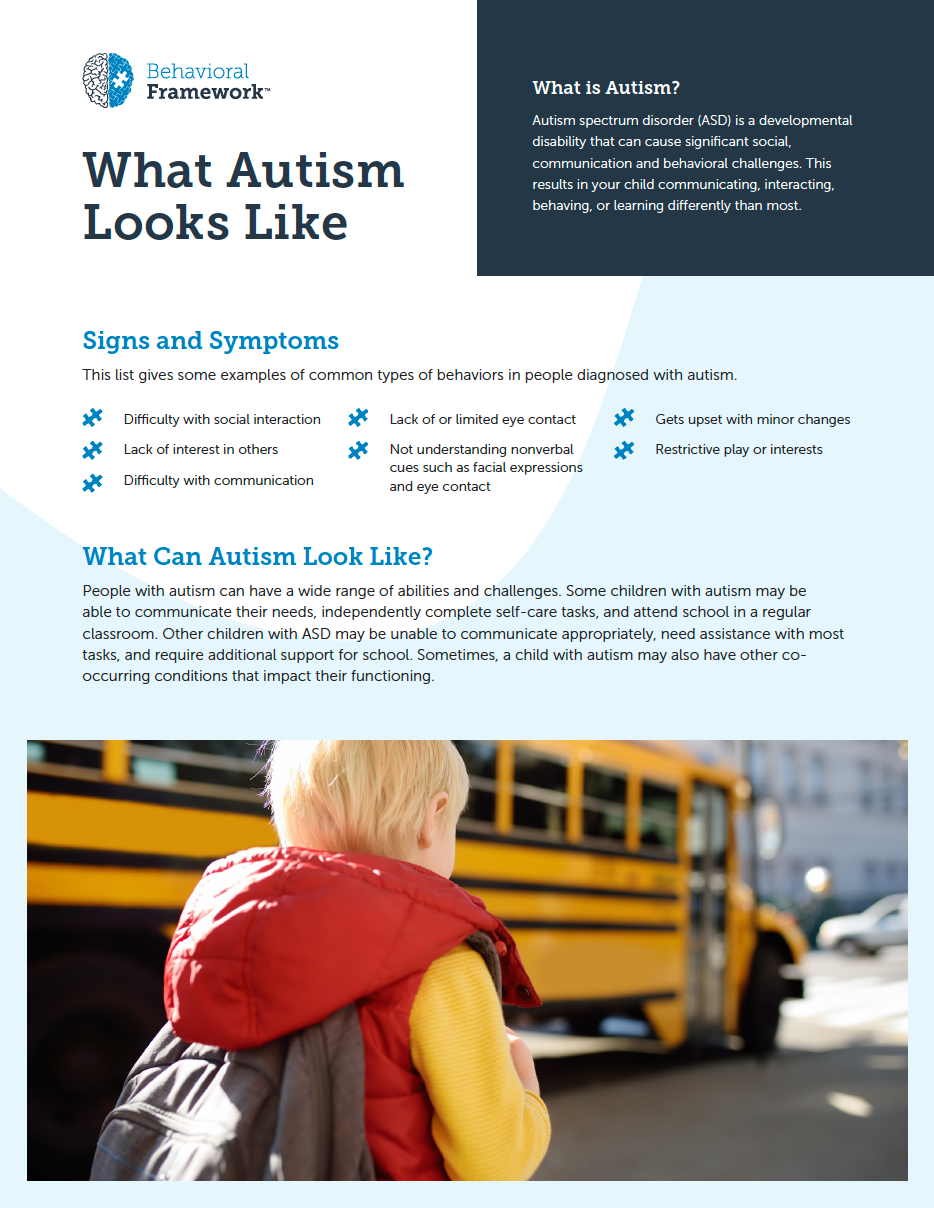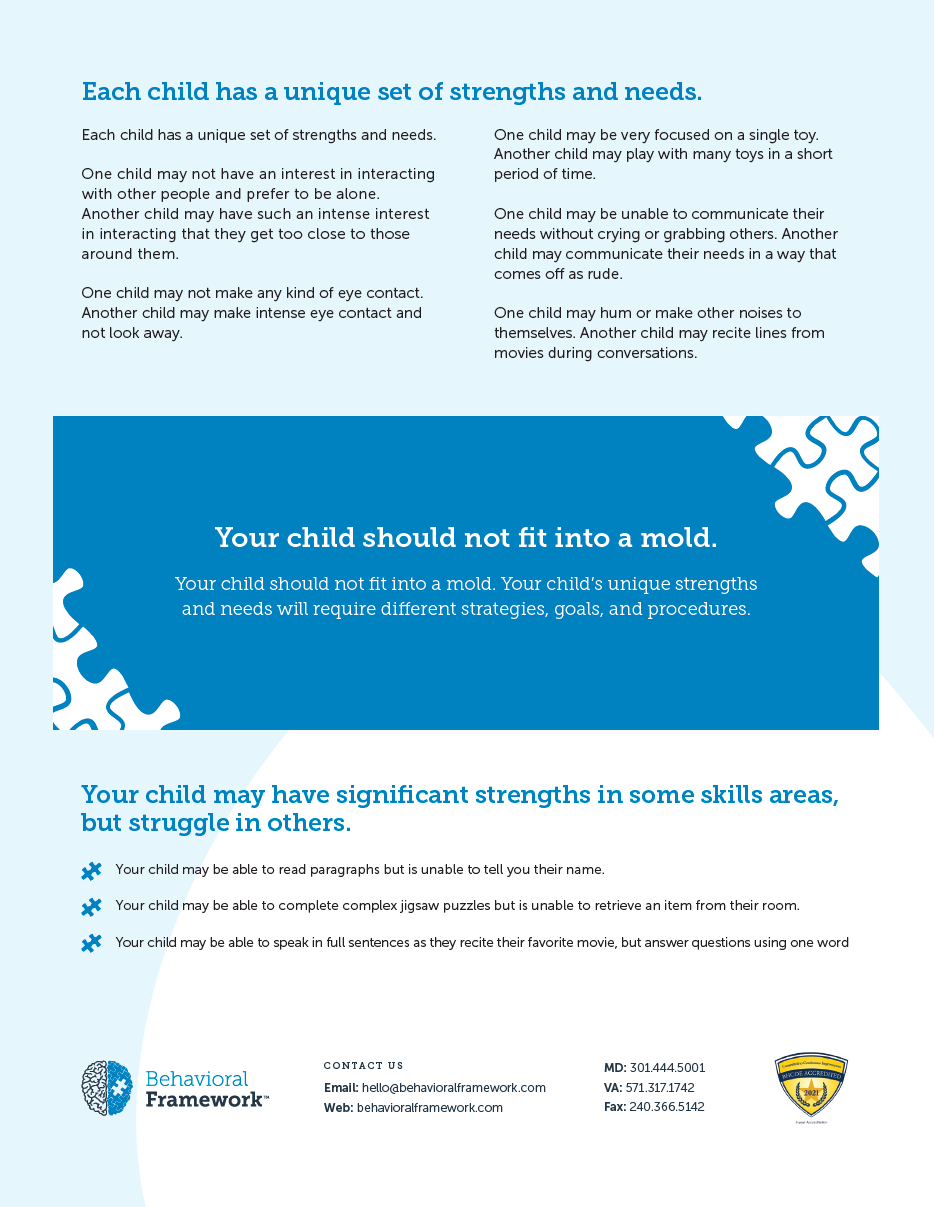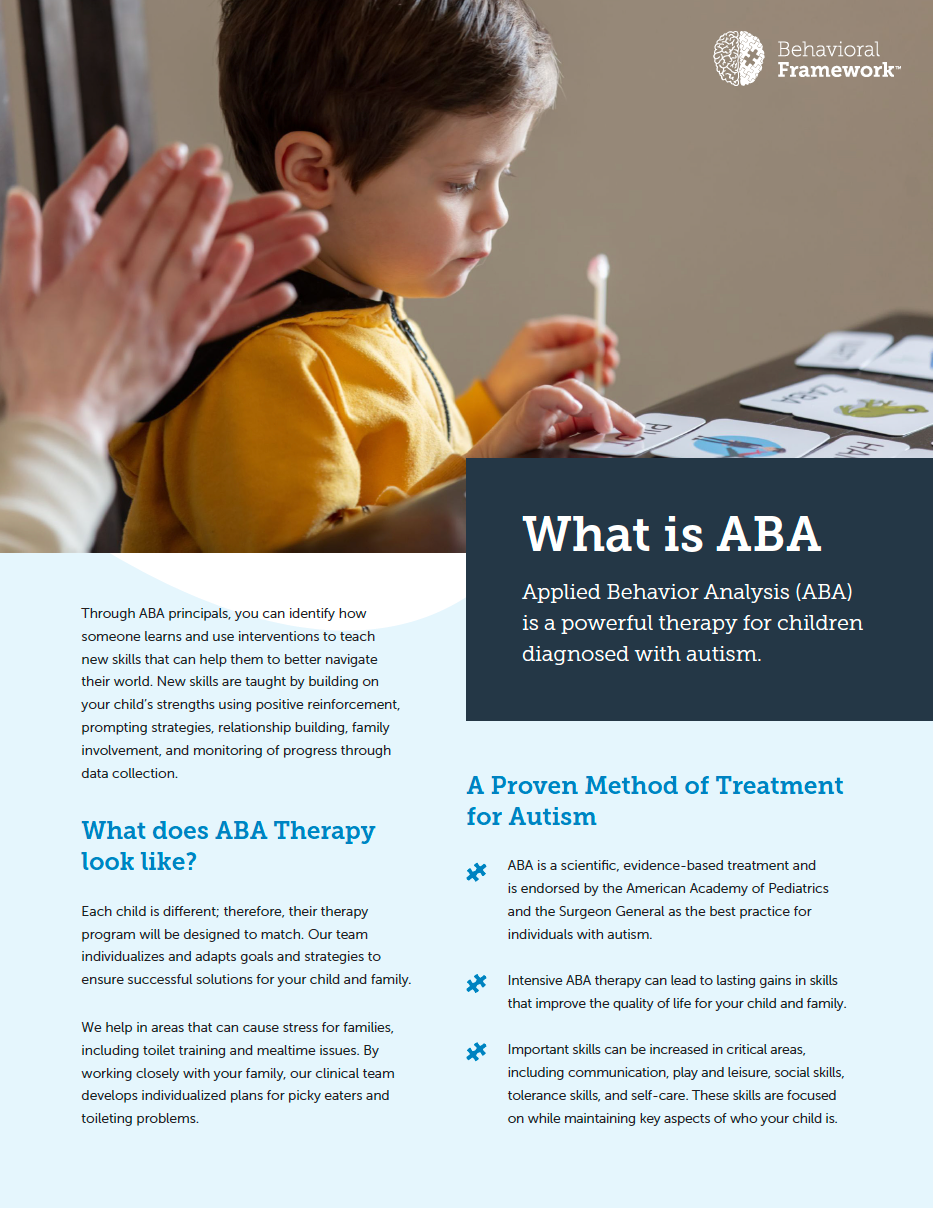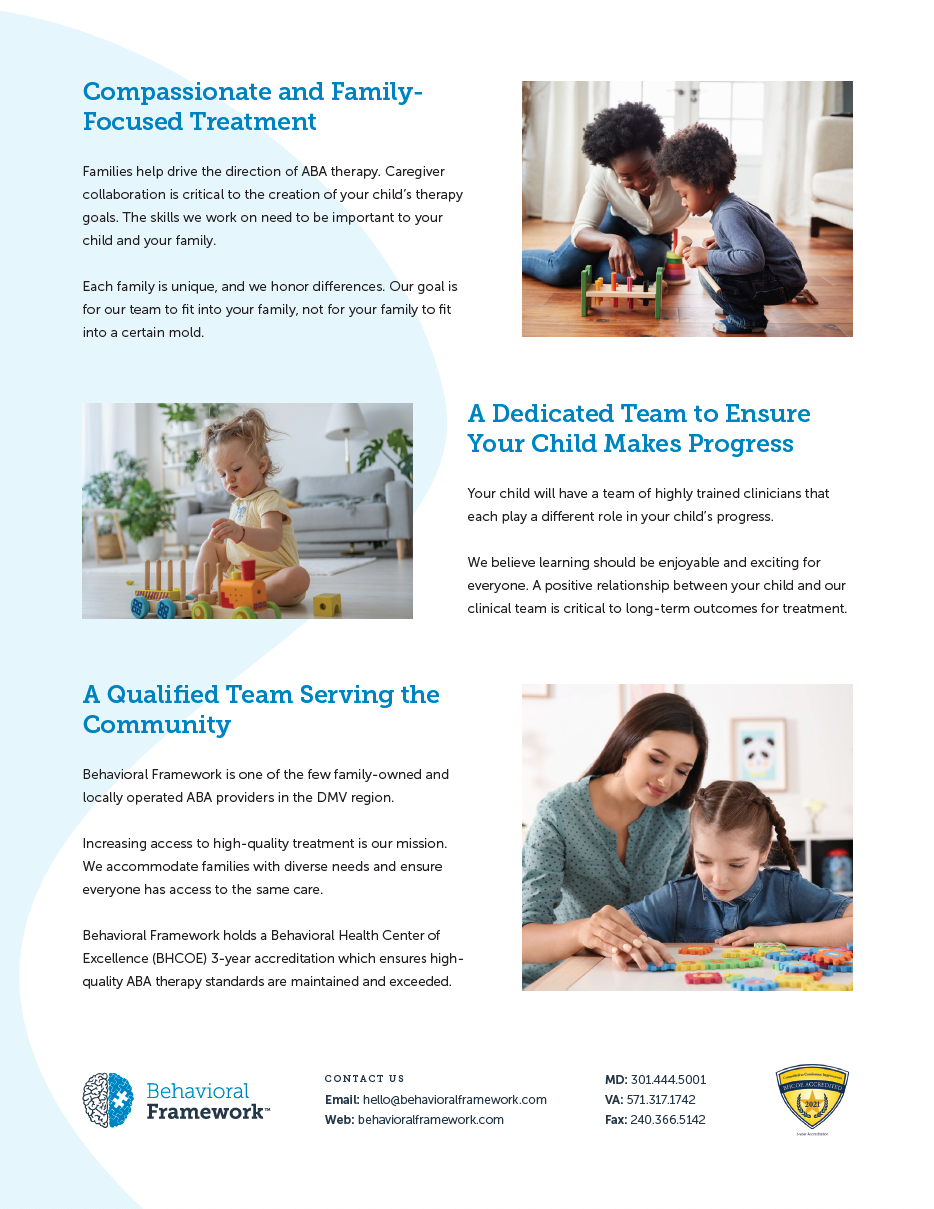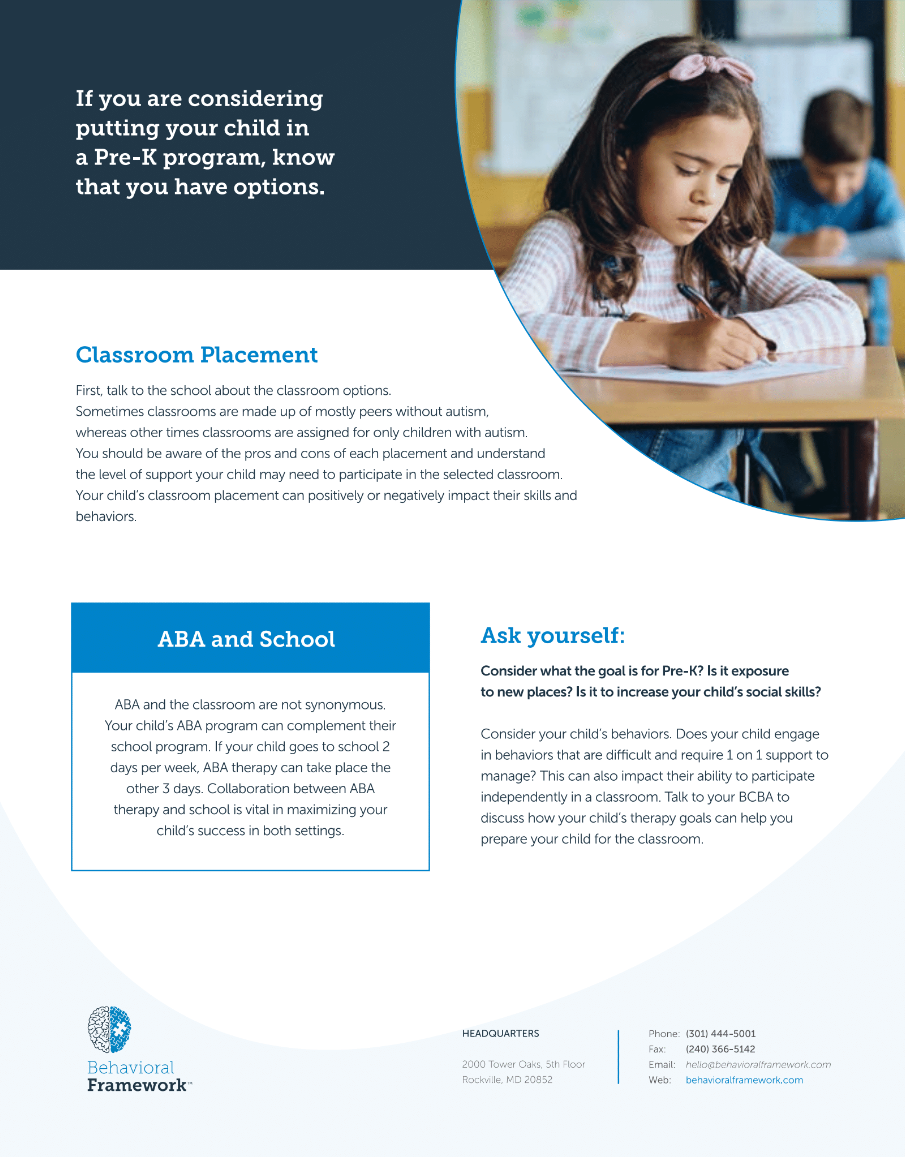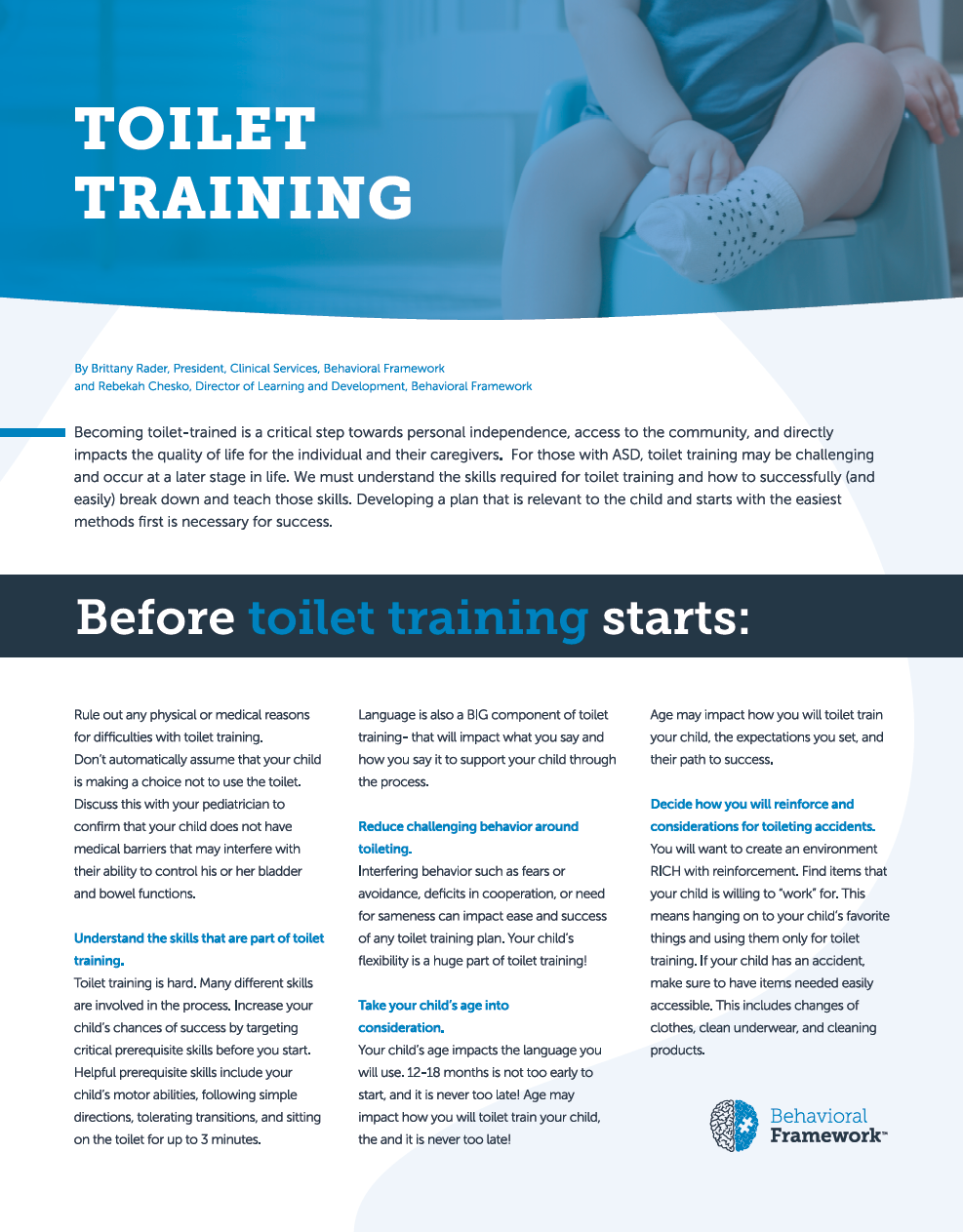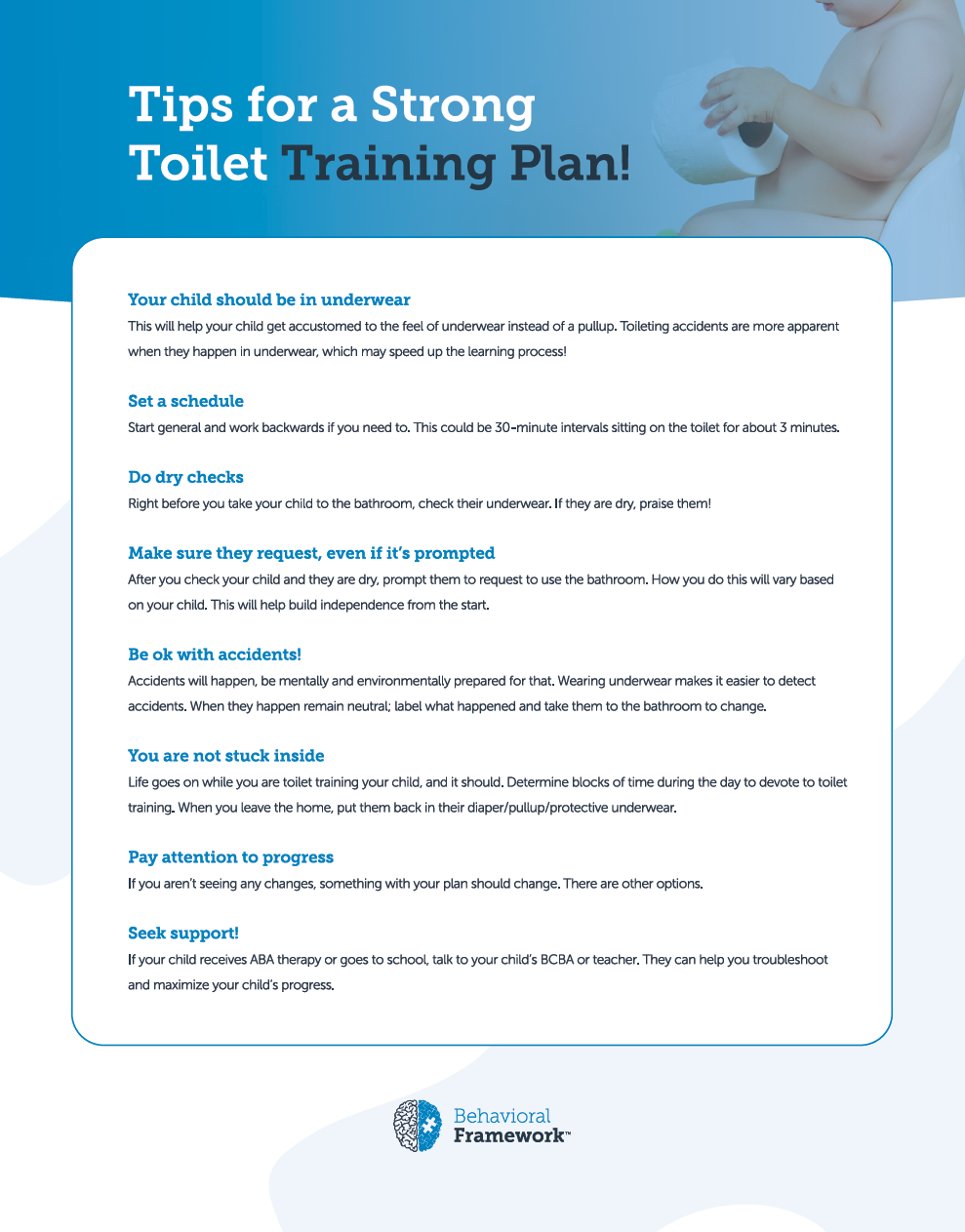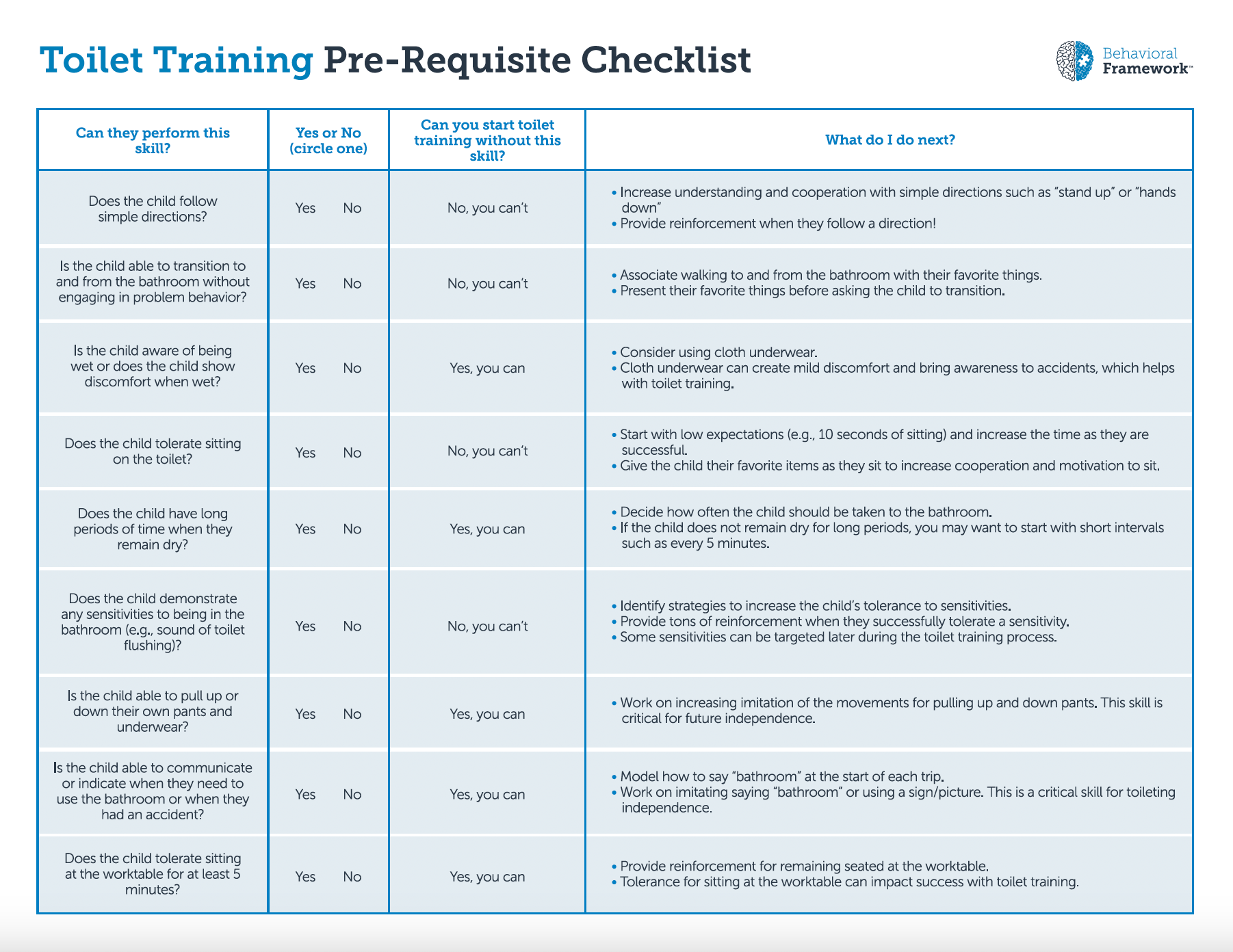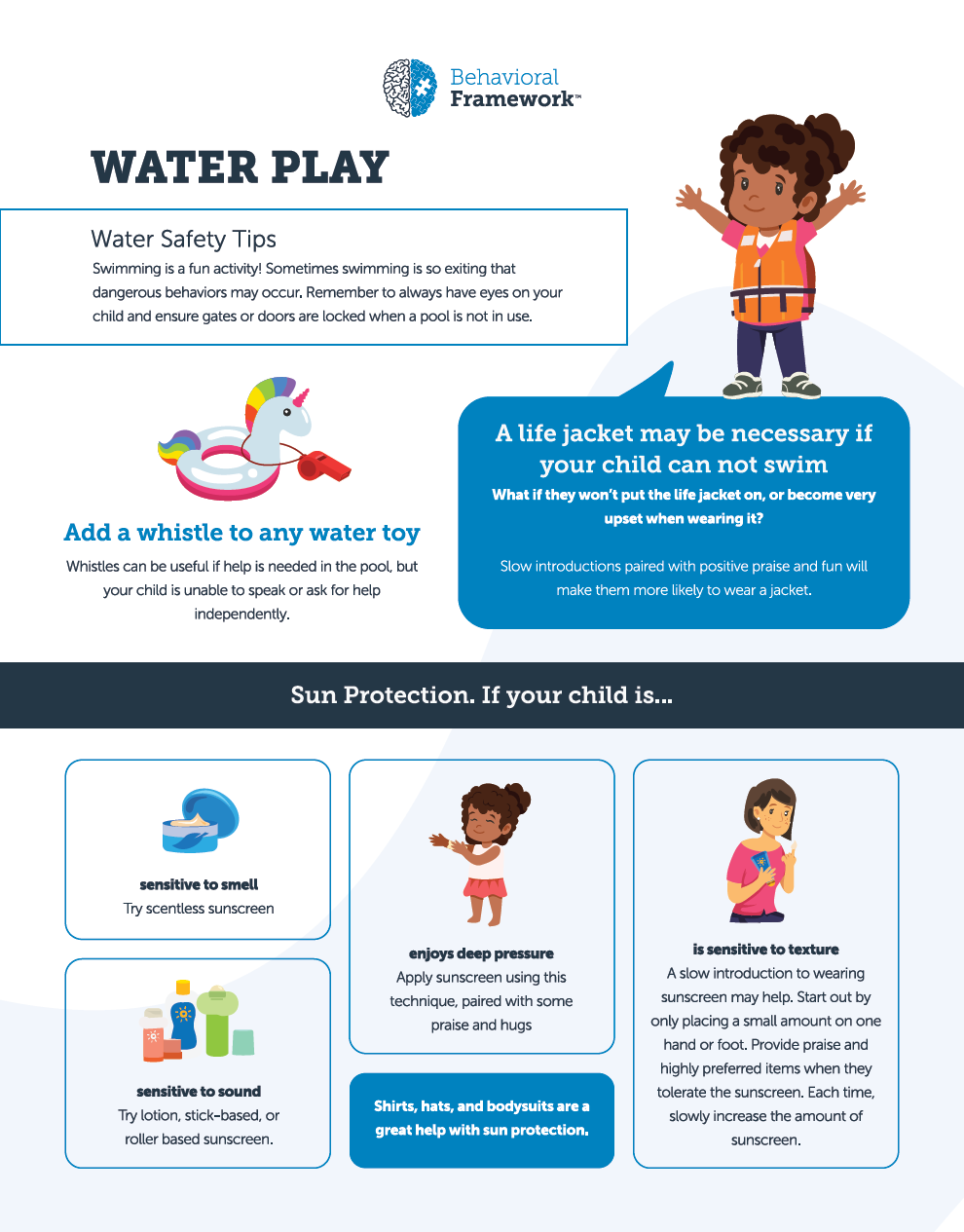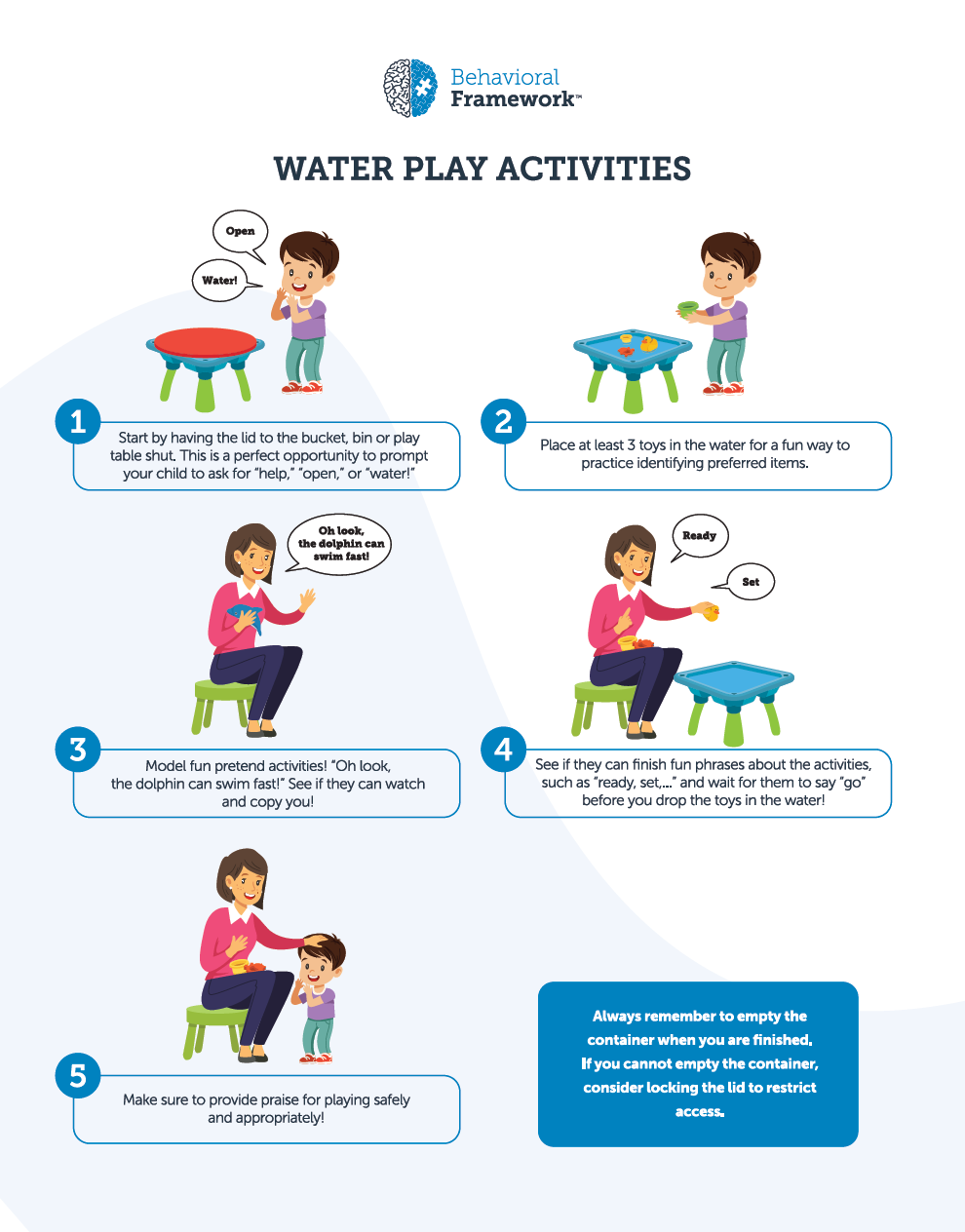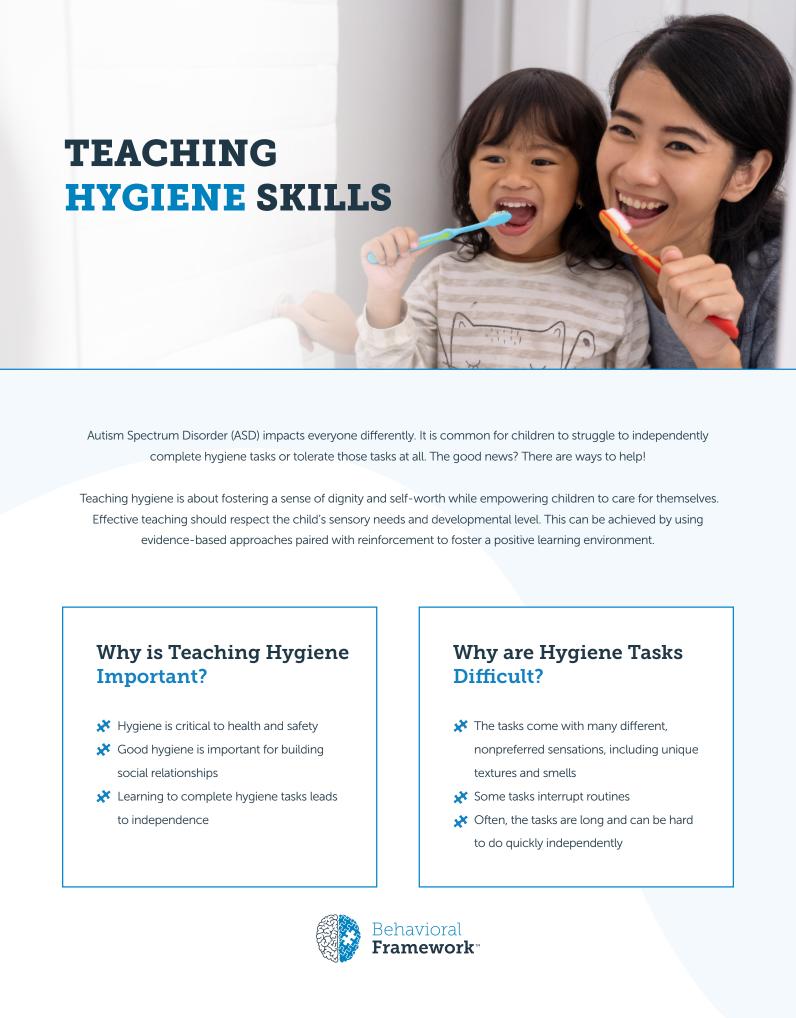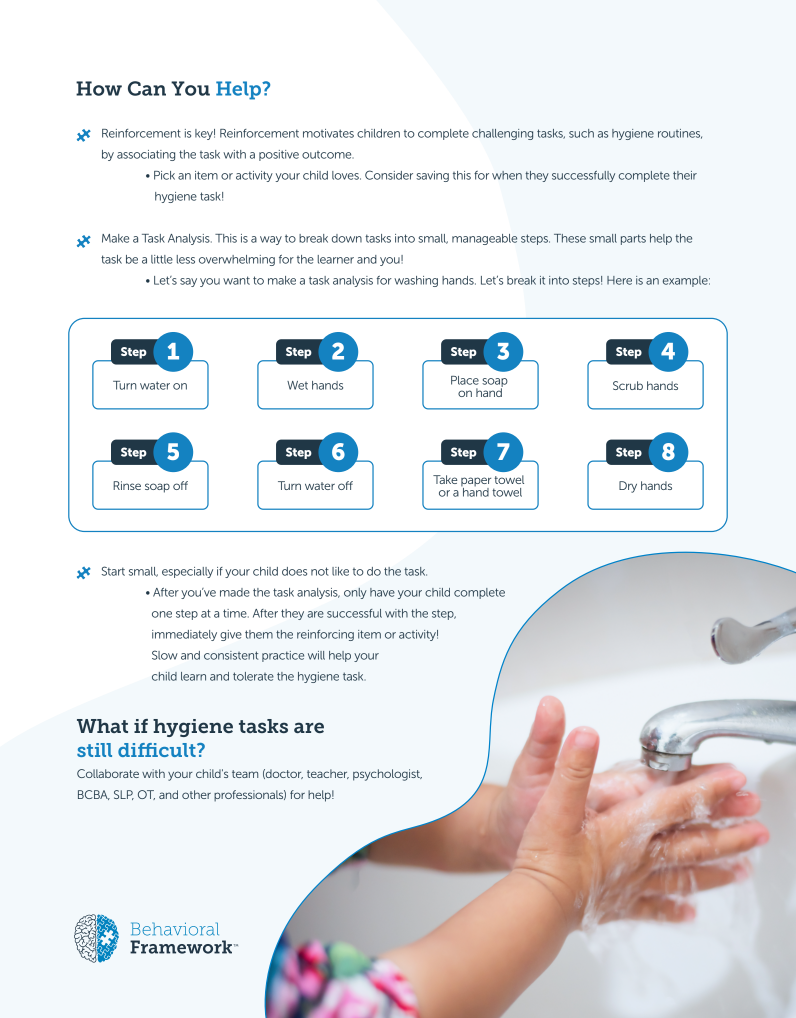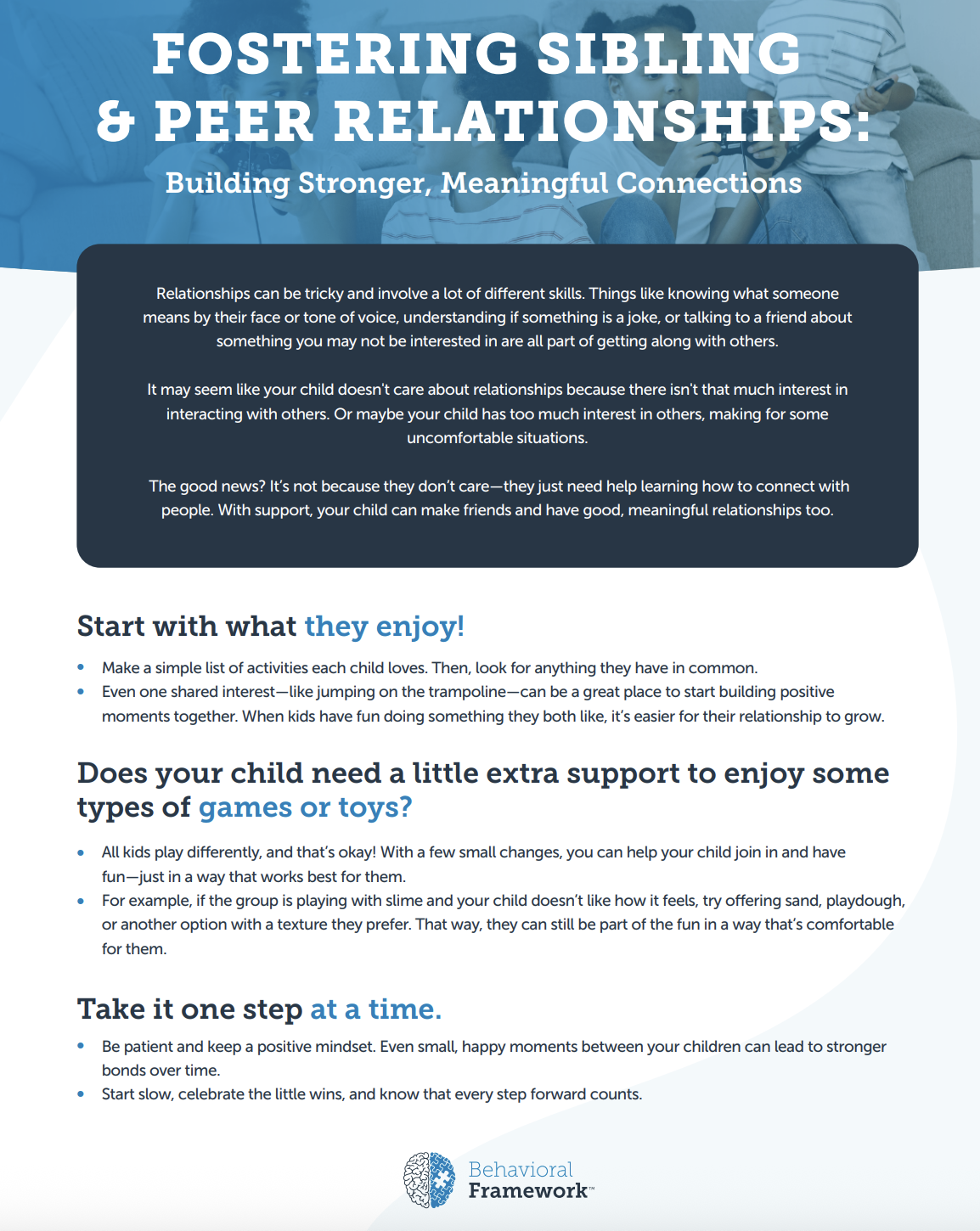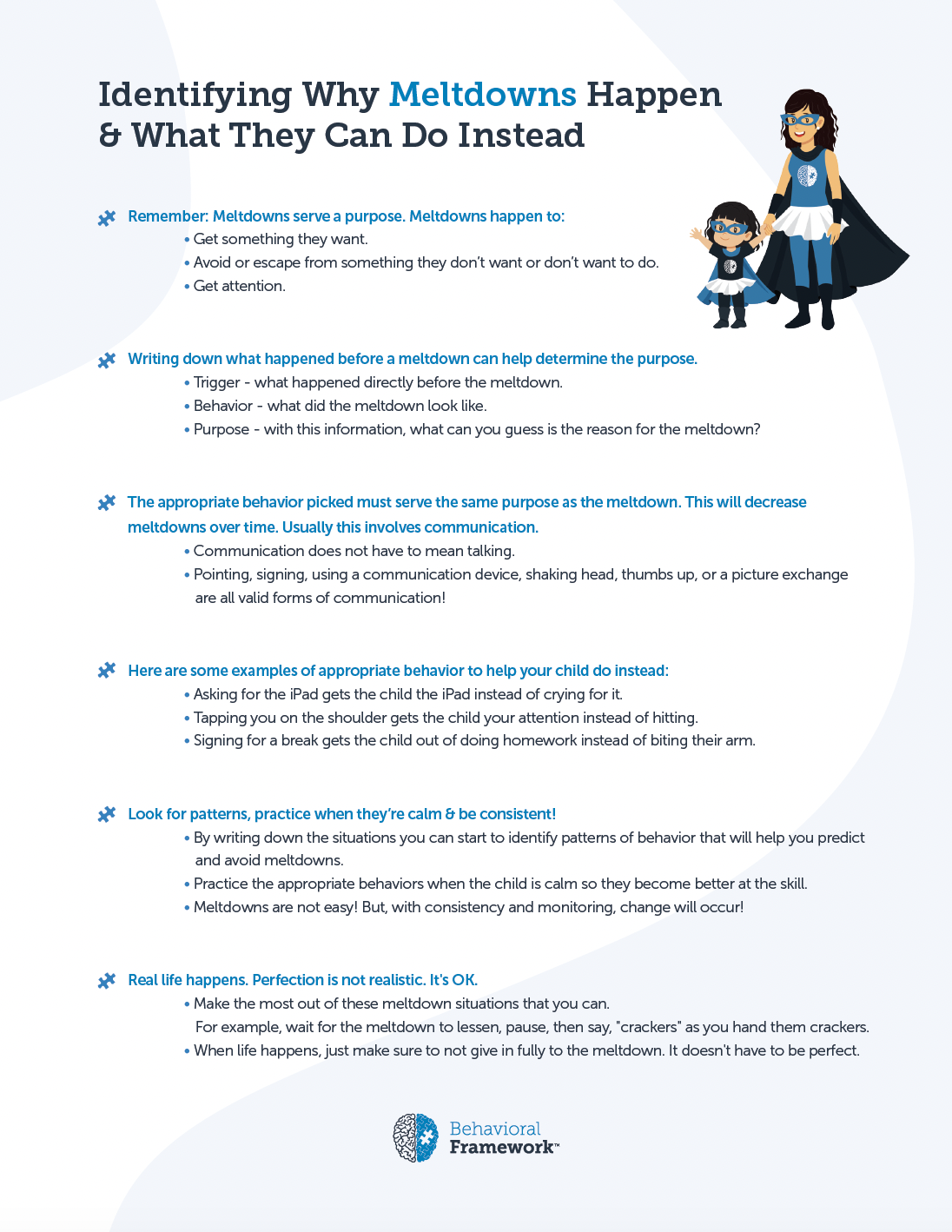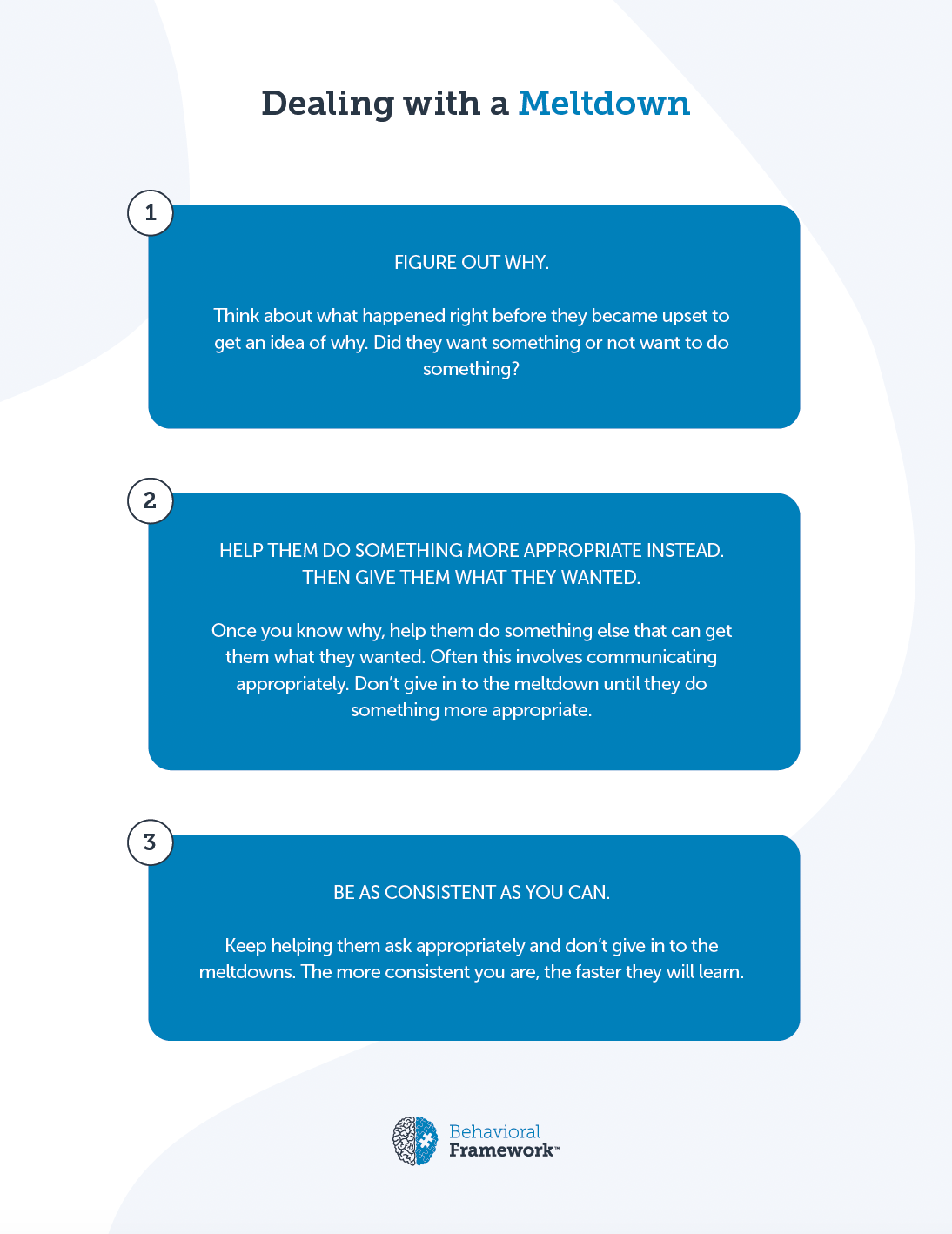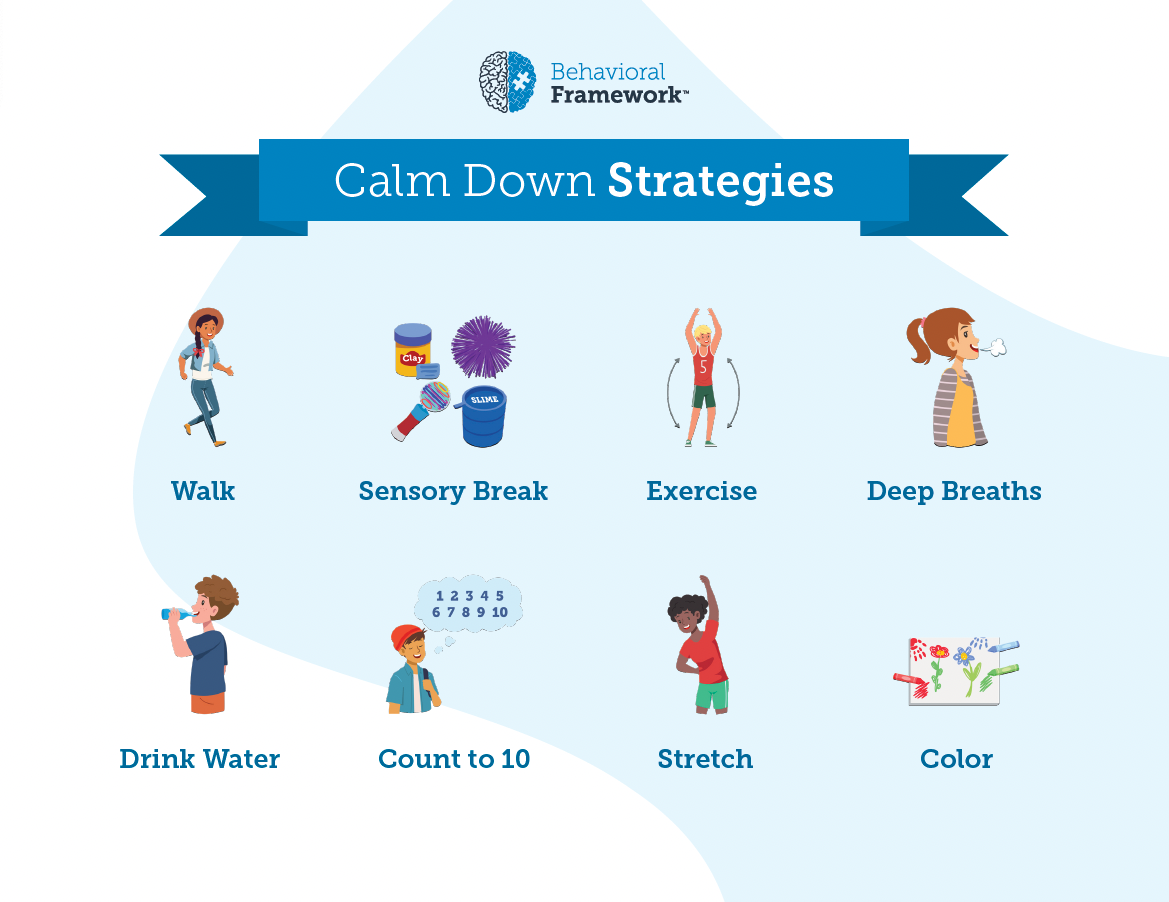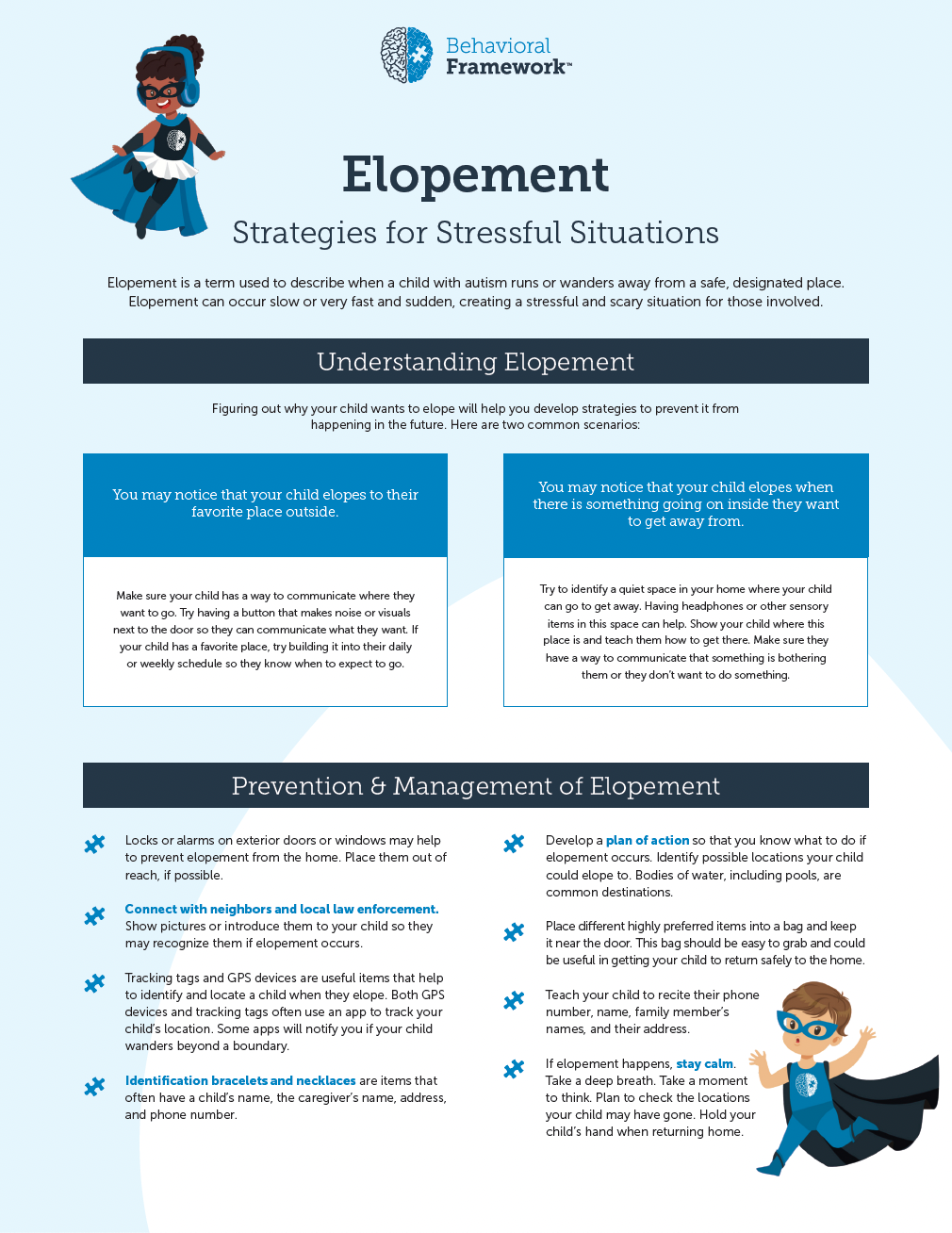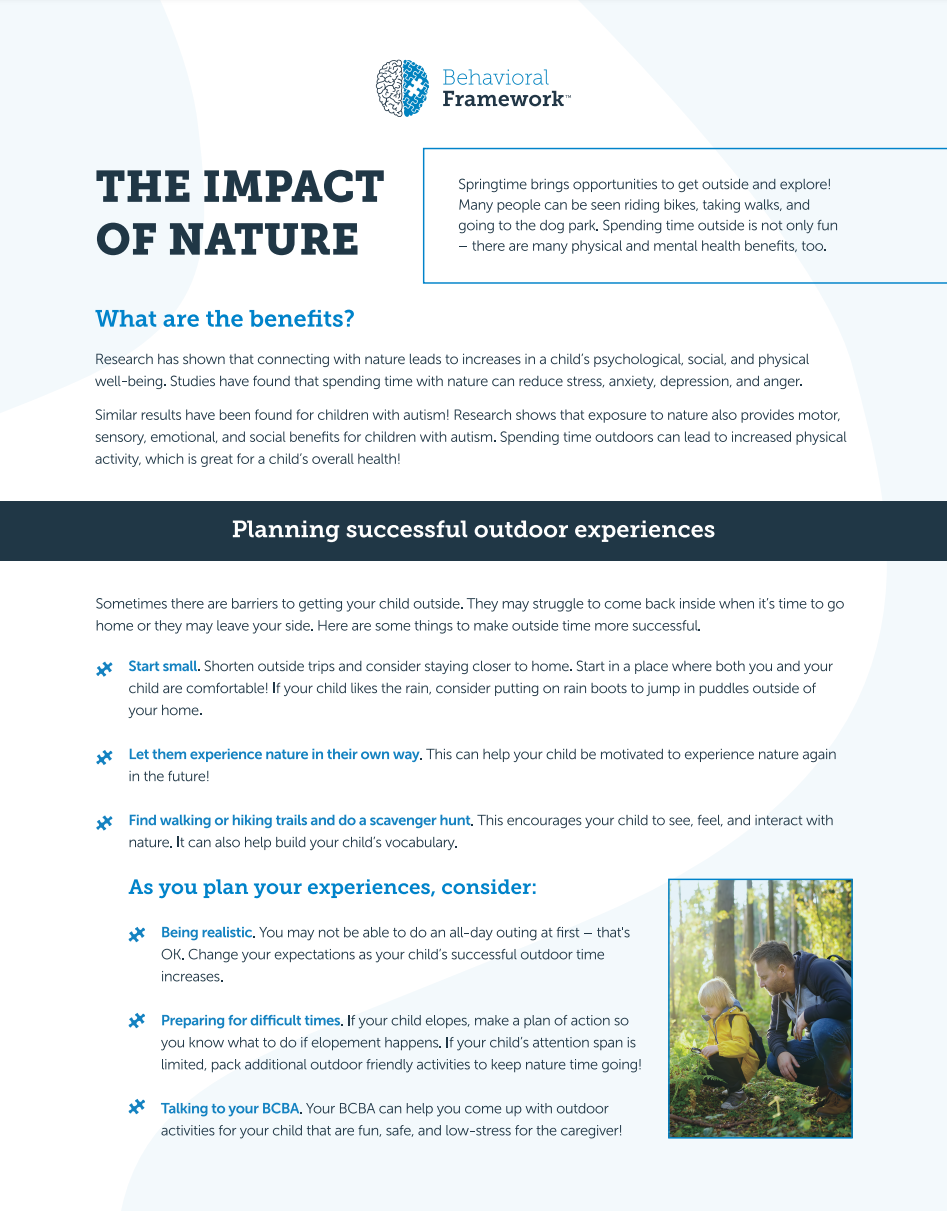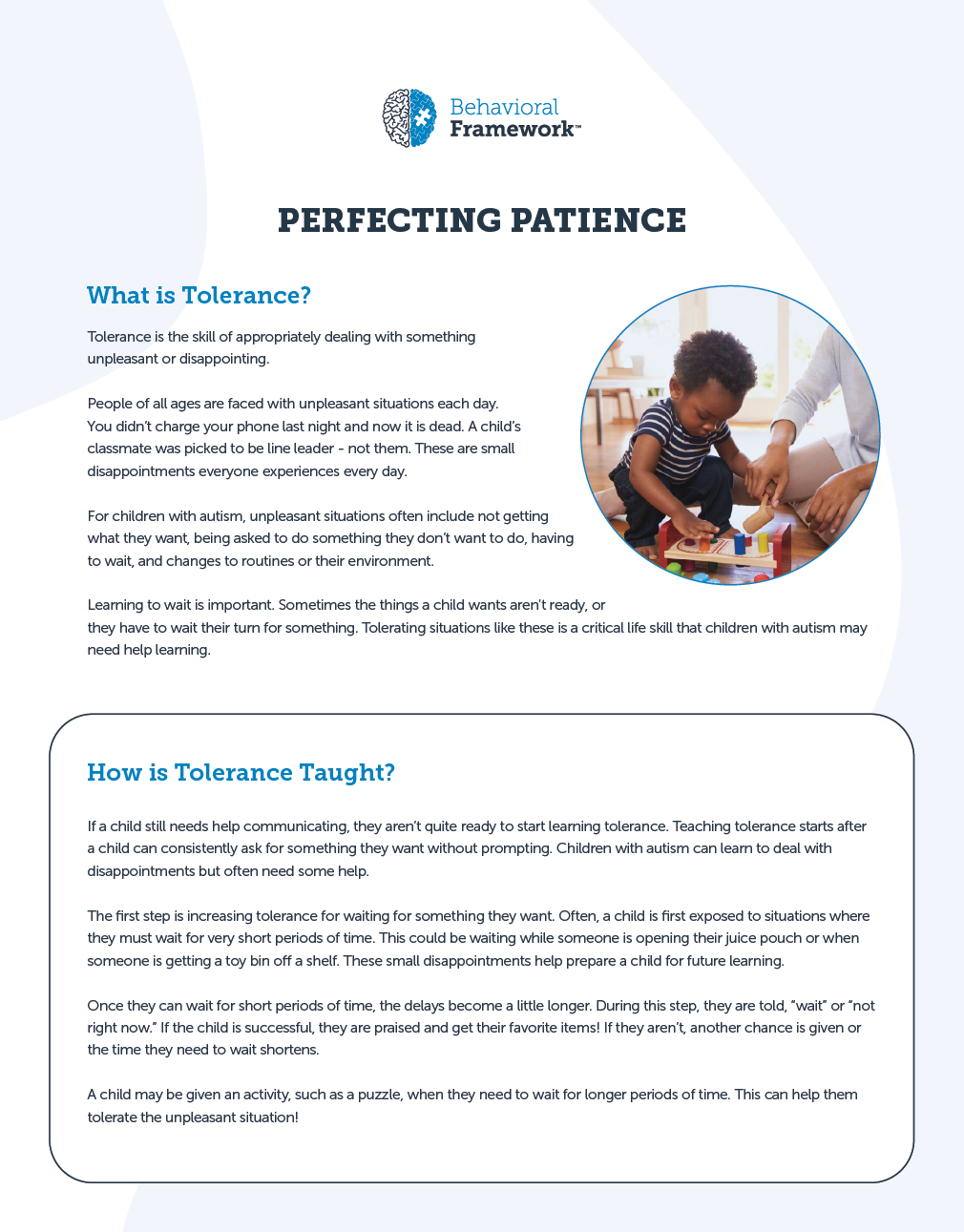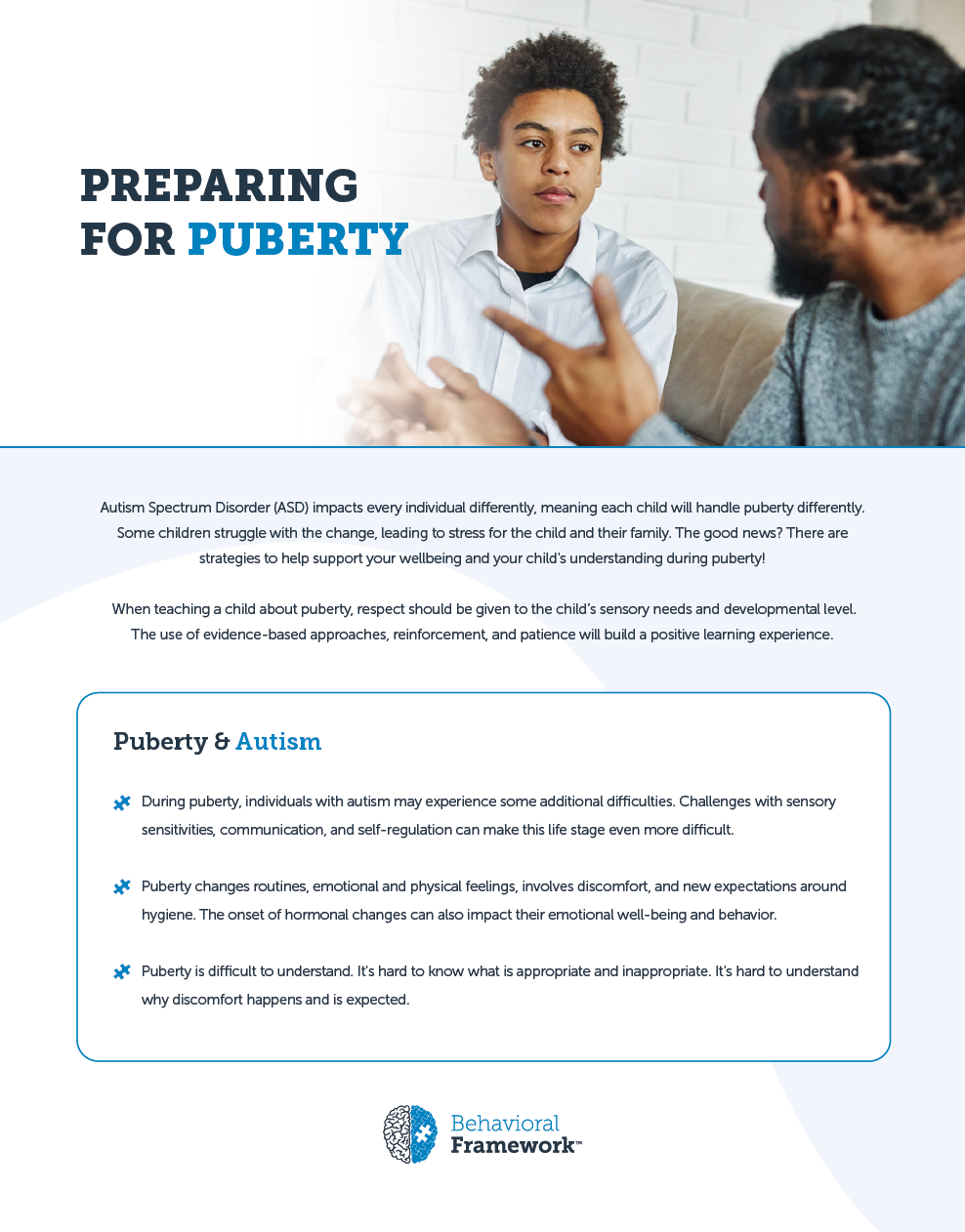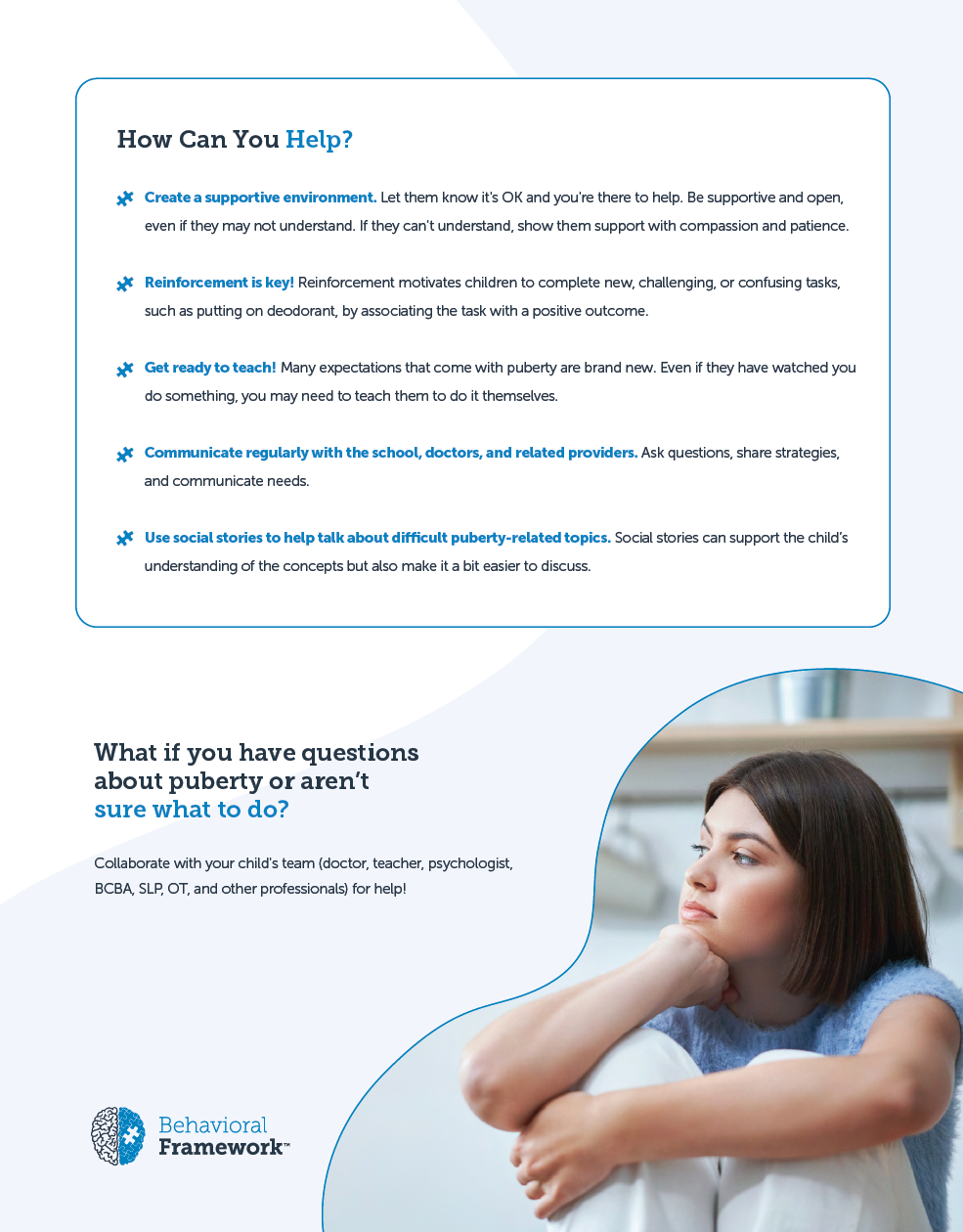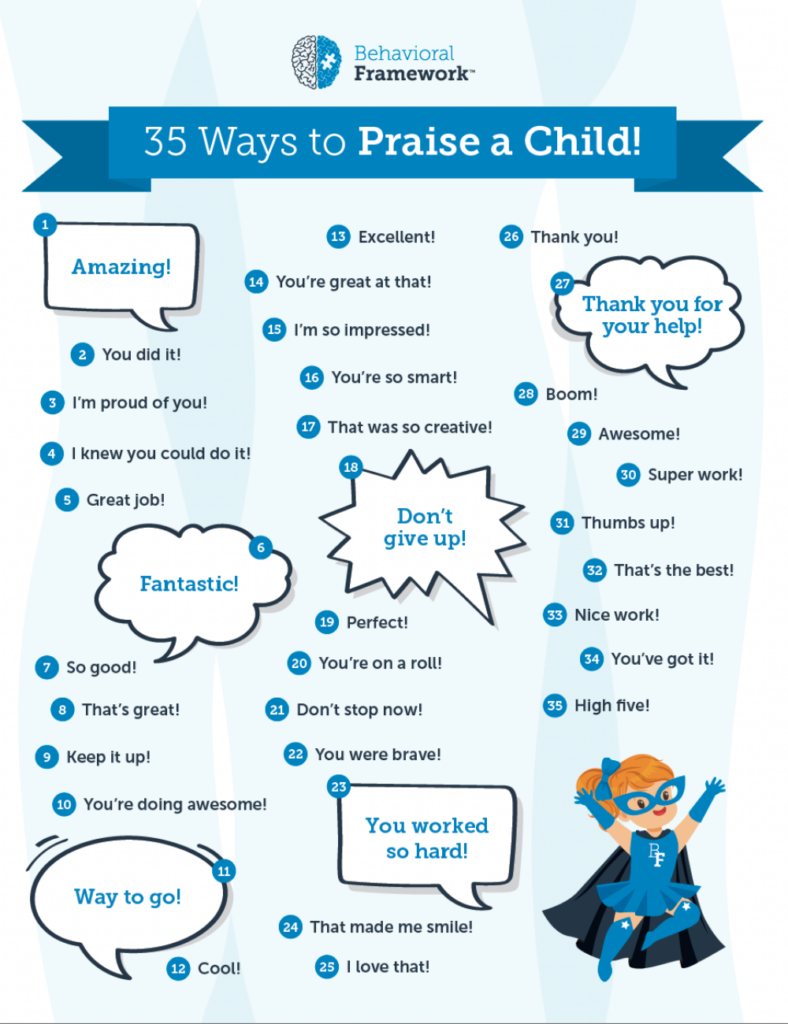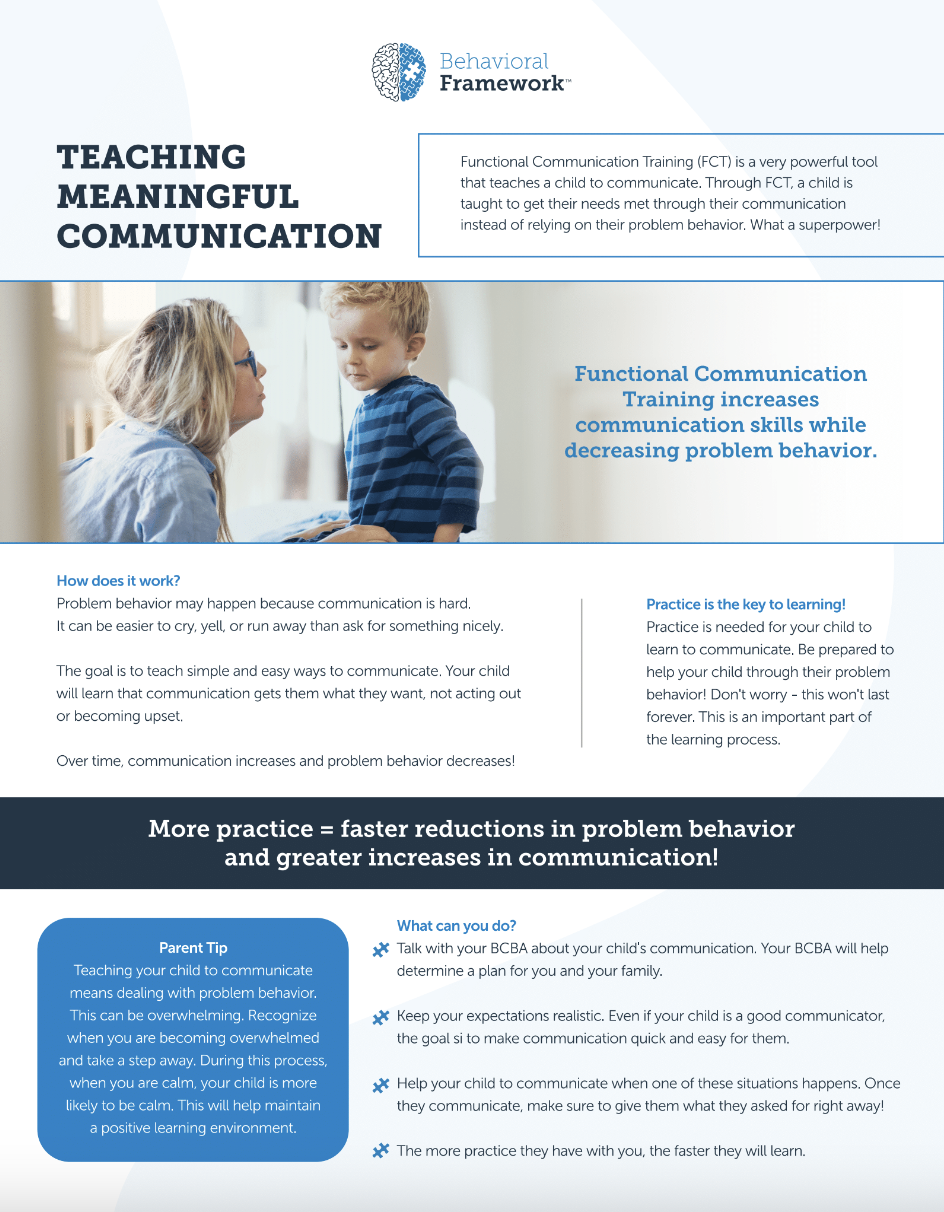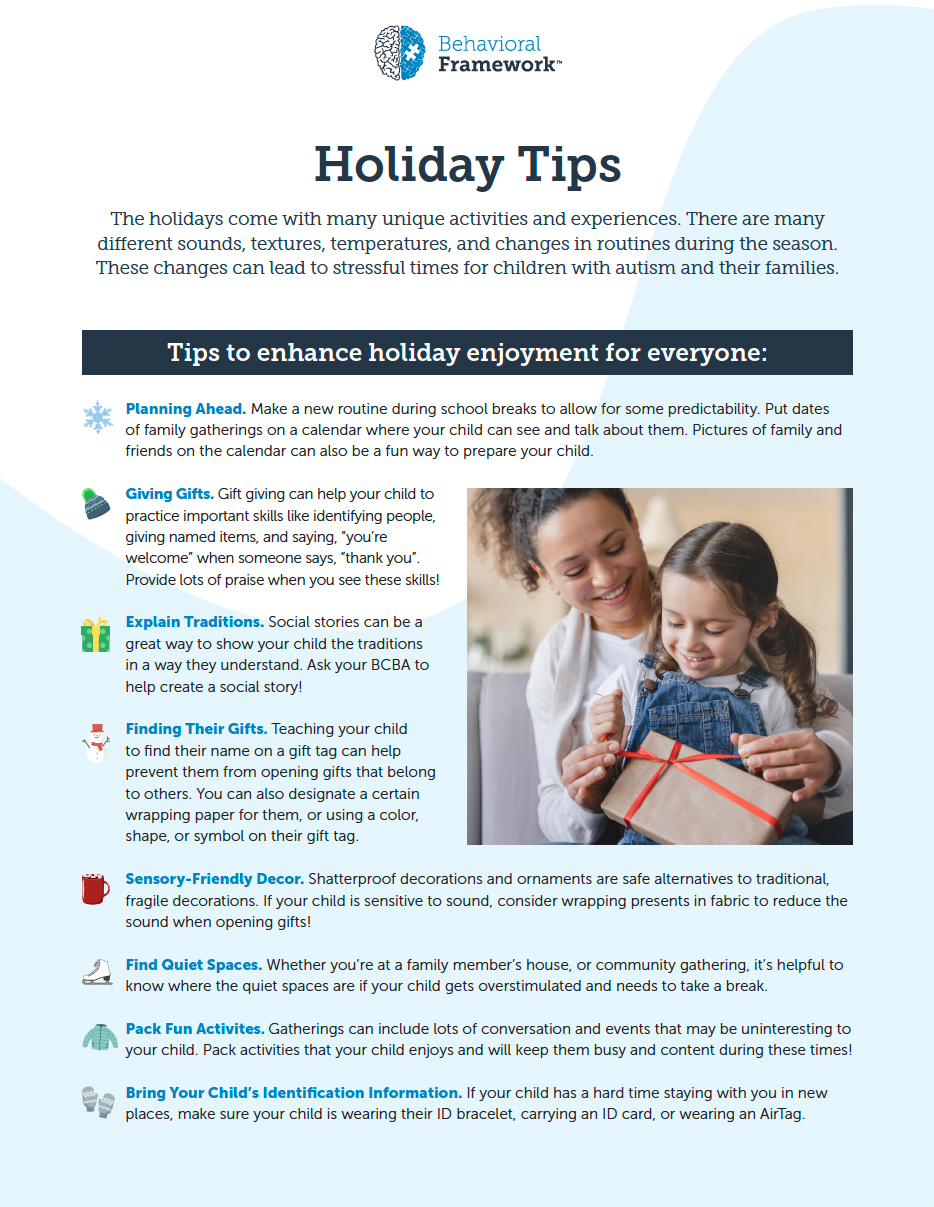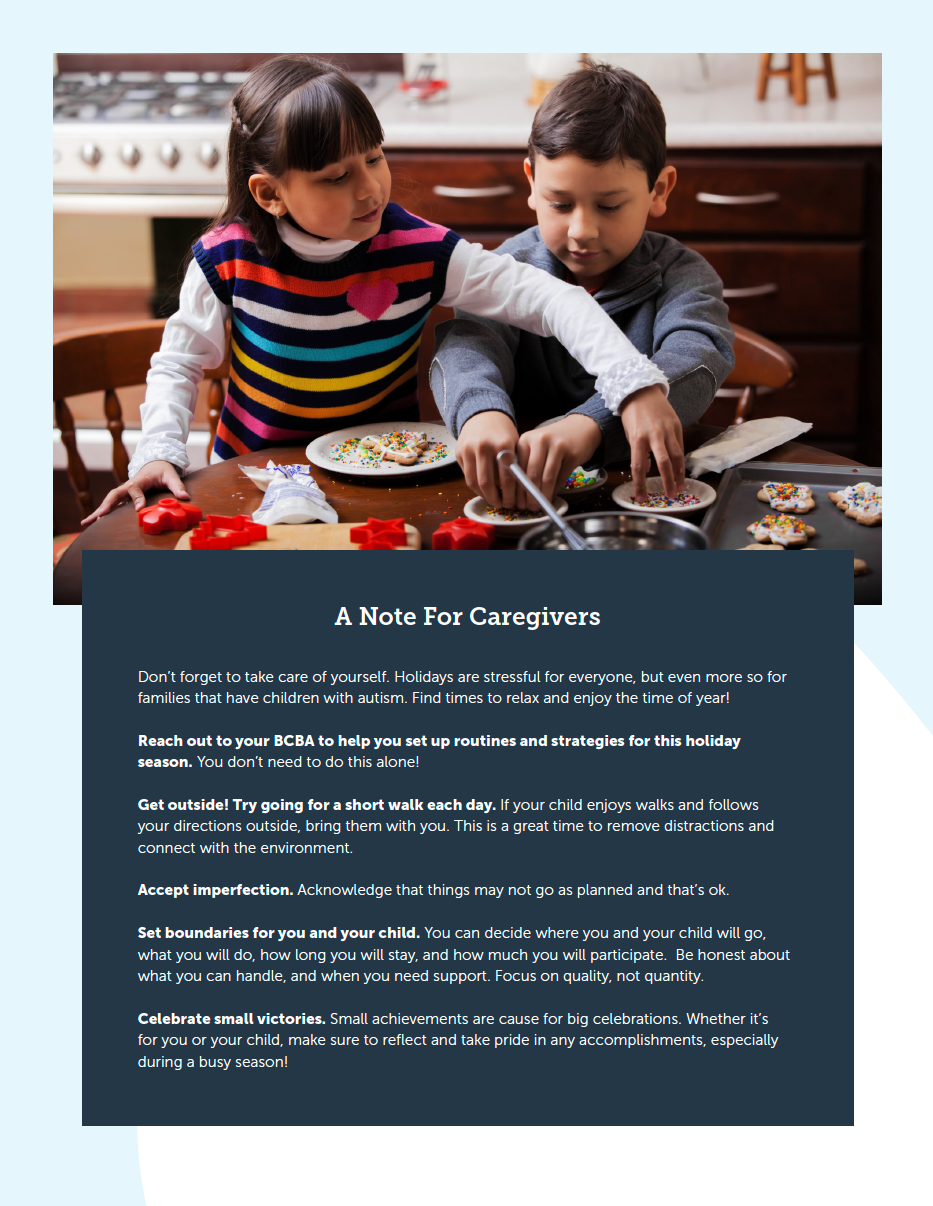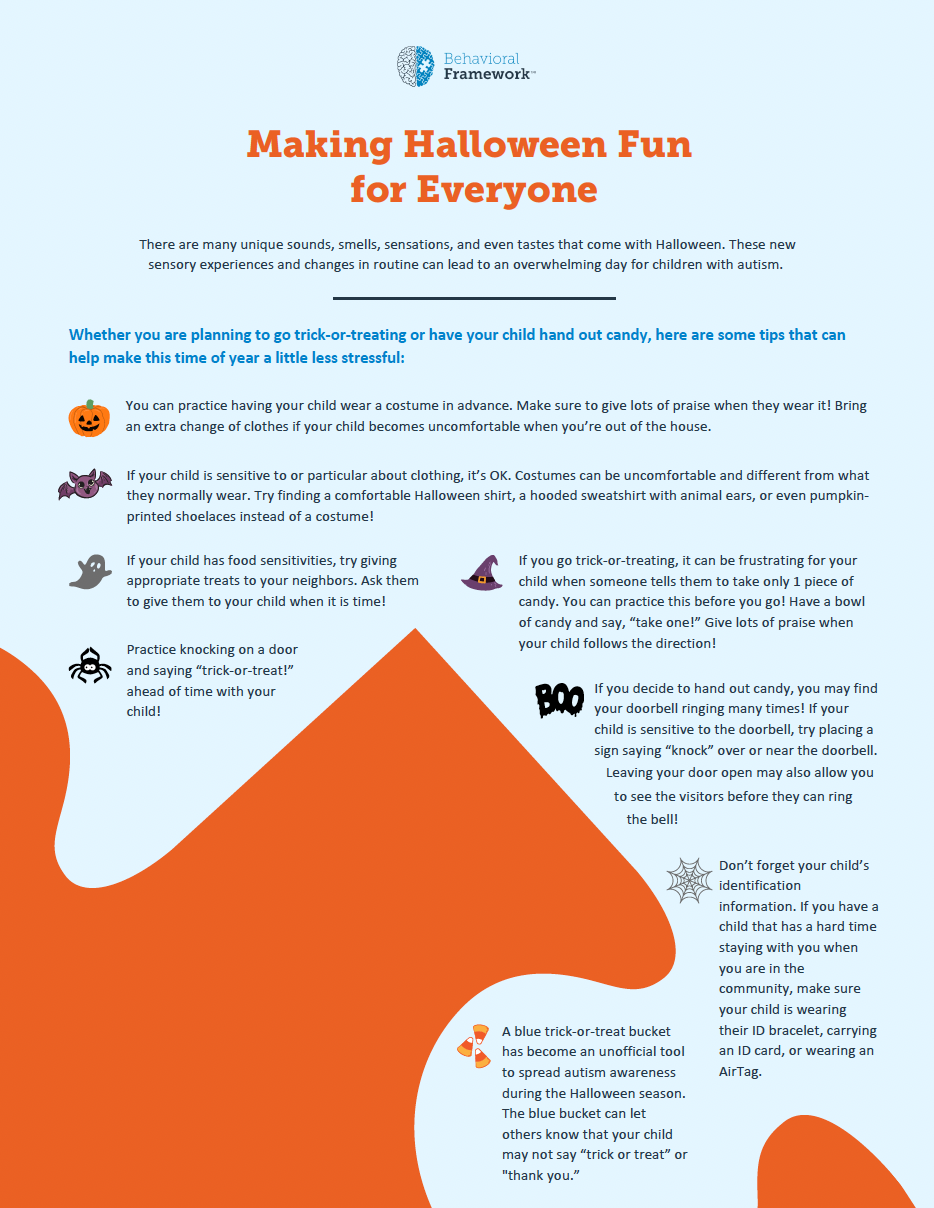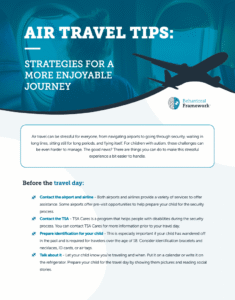Handouts & Printables
Our clinical team consistently works to provide relatable autism and ABA therapy resources to help educate families through their autism journey and offer expert tips for everyday situations.
Understanding Autism & ABA Therapy
Autism is a developmental disorder. Individuals diagnosed with autism spectrum disorder (ASD) interact with the world around them in ways that people without ASD don’t always readily understand. This can impact the development of social, communication and self-care skills. Understanding what autism looks like and what your child’s strengths and weaknesses are can help determine the best way to support them.
Applied Behavior Analysis (ABA) therapy is one of the most common therapies for people with autism and other developmental challenges. It is a scientific approach to understanding and changing behavior. ABA therapy focuses on reinforcing positive behaviors and reducing challenging ones. The goal is to help people be more independent and improve quality of life.
Preparing & Supporting Daily Life
Starting school requires many skills. This includes academic skills, but also practical skills like following simple instructions, using the bathroom at school and sitting in a group. Learn more about school readiness and how to help your child prepare for school.
Some children with ASD struggle with toilet training. Implementing a toilet training plan might be a good idea if your child needs some extra help completing the skills involved. Using ABA therapy principles, a toilet training plan breaks down necessary skills in simpler steps and helps your child work their way up to the more complex aspects of using the toilet.
Wondering if your child is ready for toilet training? Use our checklist to assess if they possess the necessary pre-requisite skills and what to do depending on where they are at.
Swimming and water play can be very fun, but it’s important to take good precautions to make the experience safe. Follow these tips for water play for kids with ASD and make sure to discuss any concerns with your ABA therapist.
Many kids with autism enjoy playing with water, but do not always understand the risk. Eloping to nearby bodies of water or pools can be very dangerous, and children with autism face a much higher risk of drowning. If your child elopes and there’s water nearby, responding quickly and efficiently is vital. The following handout includes instructions on what to do if such a situation occurs.
.
Behavior & Emotional Management
Meltdowns are triggered by specific events. In many cases, they bring a lot of intense emotion and strong physical reactions that are hard to manage for everyone involved. Identifying triggers and providing better ways to cope and manage the situation can make the experience less difficult for you and your child.
When dealing with a meltdown, it’s important to stay calm. Try to identify the trigger, work with your child to establish communication and help them manage the situation appropriately.
Stressful or overwhelming situations can lead to meltdowns. Calm down strategies can help your child feel better and de-escalate challenging scenarios. Our handout provides some ideas for calming down that you and your child can try.
Elopement occurs when a child with autism leaves a safe area or caregiver. It can take place slowly or very quickly, which can lead to stressful and scary situations. Understanding why children elope and how to prevent and manage elopement is important to keep your child safe.
Spending time outside has a lot of positive mental and physical effects for everyone. Successful outdoor outings with children with ASD often require some planning to make sure the experience is fun for everyone. Use these tips to plan a great experience.
Praise & Positive Communication
Your kid works hard to learn important life skills. Make sure to praise them for their efforts and a job well done with enthusiastic support. Get inspired with these simple phrases to praise your child!
Communication can sometimes be hard for kids diagnosed with autism, and not being able to communicate can be very frustrating. Functional Communication Training (FCT) is a great tool to teach meaningful communication skills that you and your child can use to better understand each other.
Navigating Special Events & Holidays
The holidays can be a lot of fun, but they are often stressful as well! For your child with ASD, all the new places, smells, textures and changes in routine they often involve can represent an additional challenge.
Halloween can feel a bit tricky if your child has ASD. The holiday comes with a lot of smells, sounds, colors and tastes that can be overwhelming. But this doesn’t mean your child can’t enjoy Halloween! Get inspired by these tips to make the experience fun for the entire family.
Between busy airports, security checks, long waits, and the challenges of being on a plane for hours, air travel can be overwhelming. For children with autism, these situations can feel even more intense. Fortunately, there are practical steps families can take to make the experience smoother and less stressful.
Helpful Terms & Concepts
Common Acronyms Used in ABA Therapy – A Guide for Parents and Caregivers:
AAC = Augmentative and Alternative Communication
ABA = Applied Behavior Analysis
ABLLS = Assessment of Basic Language and Learning Skills
AFLS = Assessment of Functional Living Skills
ADA = Americans with Disabilities Act
ADHD = Attention Deficit-Hyperactivity Disorder
ADL = Activities of Daily Living
ADOS = Autism Diagnostic Observation Schedule (Gold-standard test for diagnosing Autism)
ASD = Autism Spectrum Disorder
ASL = American Sign Language
AT = Assistive Technology
BCBA = Board Certified Behavior Analyst
BIP = Behavior Intervention Plan
BT = Behavior Technician (also known as RBT)
DD = Developmental Disabilities
DSM-5 = Diagnostic and Statistical Manual of Mental Disorders, 5th Edition
DTT = Discrete Trial Training
EI = Early Intervention
FBA = Functional Behavior Assessment
HIPAA = Health Insurance Portability and Accountability Act
I/DD = Intellectual and Developmental Disabilities
IEP = Individualized Education Plan
IFSP = Individualized Family Service Plan
ITP = Infants and Toddlers Program (Maryland’s early intervention program)
LBA = Licensed Behavior Analyst
NT = Neurotypical
OT = Occupational Therapist /therapy
PECS = Picture Exchange Communication System
PT = Physical Therapist /therapy
RBT = Registered Behavior Technician
SIB = Self-Injurious Behavior
SLP = Speech Language Pathologist
SSI = Supplemental Security Income
ST = Speech therapist/therapy
VB-MAPP = Verbal Behavior Milestones Assessment and Placement Program
